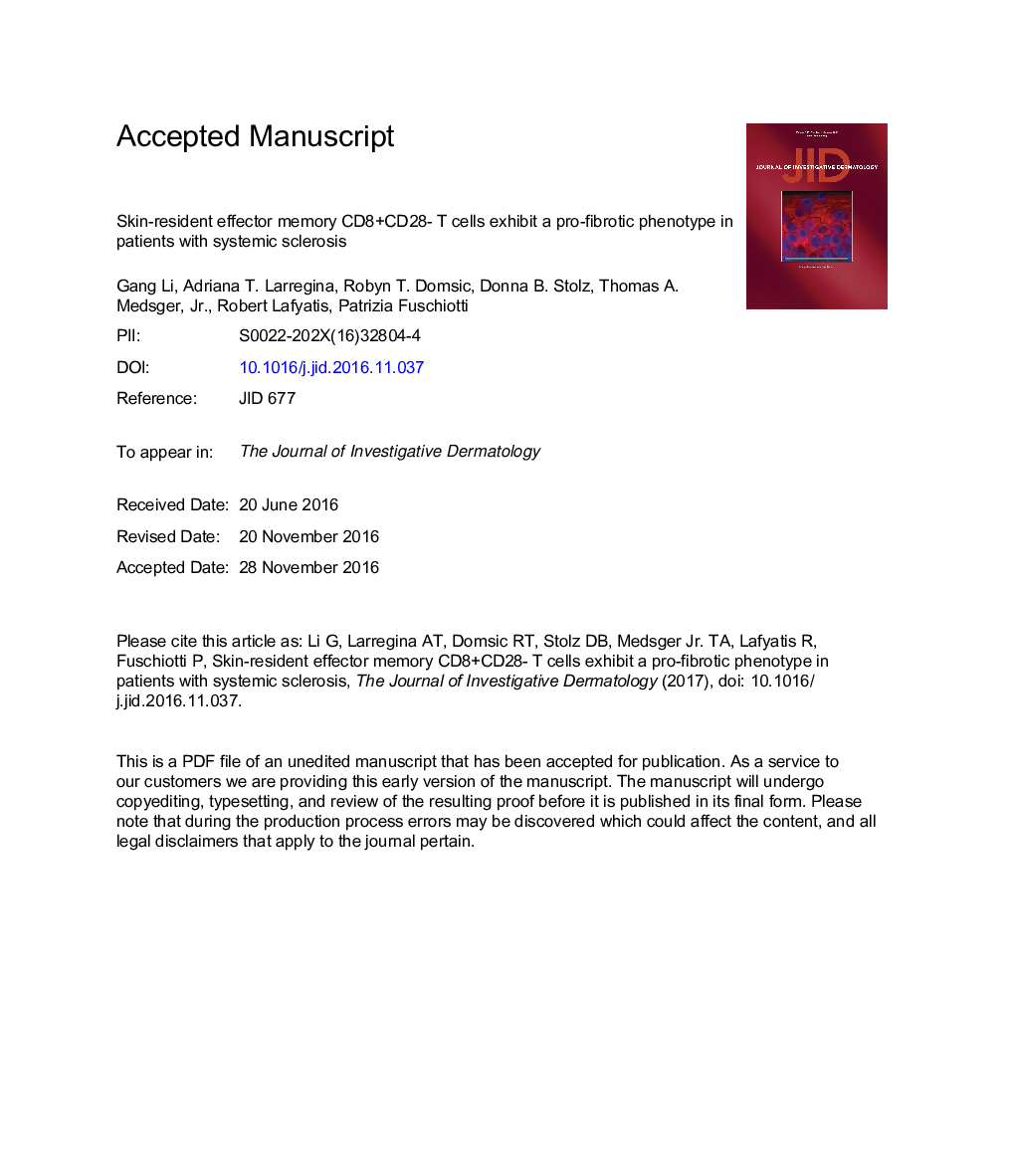| Article ID | Journal | Published Year | Pages | File Type |
|---|---|---|---|---|
| 5649510 | Journal of Investigative Dermatology | 2017 | 36 Pages |
Abstract
Loss of CD28 expression by CD8+ T cells occurs with age and during chronic inflammatory conditions. CD8+CD28- T cells are a heterogeneous cell subpopulation whose function ranges from immunosuppressive to effector. Here we analyzed the role of CD8+CD28- T cells in the pathogenesis of systemic sclerosis (SSc), a connective tissue disorder characterized by autoimmunity, vasculopathy, and extensive cutaneous and visceral fibrosis. We show that the frequency of CD8+CD28- T cells is increased in the blood and affected skin of SSc patients, independent of patient age, and correlates with the extent of skin fibrosis. We found that most skin-tropic CD8+CD28- T cells are resident in the skin lesions of patients in the early stage of the disease, exhibit an effector memory phenotype, and present a strong cytolytic activity ex vivo. Skin-resident and circulating SSc CD8+CD28- T cells produce high levels of the profibrotic cytokine IL-13, which induces collagen production by normal and SSc dermal fibroblasts. Thus, our findings indicate that CD8+CD28- T cells represent a pathogenic T-cell subset in SSc and likely play a critical role in the early stage of SSc skin disease.
Related Topics
Health Sciences
Medicine and Dentistry
Dermatology
Authors
Gang Li, Adriana T. Larregina, Robyn T. Domsic, Donna B. Stolz, Thomas A. Jr., Robert Lafyatis, Patrizia Fuschiotti,
